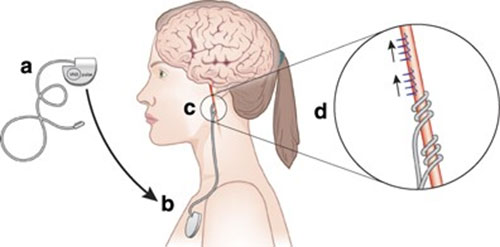'Heart failure epidemic' spurs search for new therapies in treatment
For more than a decade, health experts in Japan have been warning of a looming pandemic: not COVID-19 or any other infectious disease, but heart failure. As the country's population continues to age rapidly, the number of elderly people with heart problems is also set to skyrocket.
Heart failure is a chronic condition in which the heart is no longer able to pump enough blood and oxygen throughout the body. It is a progressive and particularly worrying form of malignancy. Around one million people in Japan are living with the condition, and another 370,000 are expected to be affected by 2025. People with the condition experience a reduced quality of life, and are more likely to need hospital care or die prematurely.
'You could call it a heart failure epidemic,' said Shinya Miike, president and CEO of Neuroceuticals, a Tokyo-based medical device company. Now, after eight years of research and development, Neuroceuticals is testing a therapy that electrically stimulates the vagus nerve—a vital conduit from the brain to the body—in patients with heart disease.
Risk screening
In fact, there are many different negative health conditions that can lead to heart failure. However, a heart attack, which occurs when blood flow to the heart is suddenly blocked (commonly known as a heart attack) due to a blockage in an artery, is the main cause. Despite advances in treatment, more people are surviving a heart attack, but up to 35% of them will go on to develop heart failure.
This is because although most damage to heart cells occurs within hours of a heart attack, these cells can continue to die for years. Drugs called beta-blockers are often prescribed to block the chronic activation of β-adrenergic receptors that is thought to cause heart cell death. But the problem is that beta-blockers only take effect after a few hours, by which time the heart attack has already damaged the heart cells. In addition, the drugs must be taken for life. 'There is clearly an unmet clinical need for a more effective treatment,' he said.
To meet that need, a team of scientists around the world, including Neuroceuticals, is looking to protect heart cells in a different way, using vagus nerve stimulation (VNS). With VNS, electrical pulses are used to change connections in the nervous system.
The vagus nerve runs from the brain to the chest and abdomen, regulating functions such as heart rate and digestion. Stimulating it can activate the parasympathetic system, which can help reduce heart rate and inflammation in the heart, both of which are potentially important factors in managing heart failure.
'There are many animal studies showing that VNS can reduce heart rate and inhibit inflammation in the cardiovascular region,' said Dr. Keita Saku, laboratory head at the National Center for Cardiovascular and Brain in Japan and a collaborator on Neuroceuticals.

Now, the Neuroceuticals team has developed an electronic catheter that stimulates the vagus nerve through an inserted needle. The device, just 2.5mm long, has a unique whip-shaped tip called a 'basket'. This design allows doctors to quickly insert it inside the patient's body, close to the ideal blood vessel – which can vary from person to person.
The company is working with researchers at Kyushu University in Fukuoka to conduct a clinical study on about 30 people with arrhythmias who need the same treatment as heart failure patients.
The research is likely to take years of clinical trials. But if VNS proves effective, it could help meet the growing clinical need for different approaches to treating heart failure.
You should read it
- ★ Inhaling a nanoparticle can prevent heart damage
- ★ Warning: The number of people aged 70 and older with heart failure will increase by 3 times by 2060
- ★ Scientific explanation of 'broken heart' when falling in love
- ★ Signs of heart disease should not be ignored
- ★ Smart toilets can help protect users against heart failure